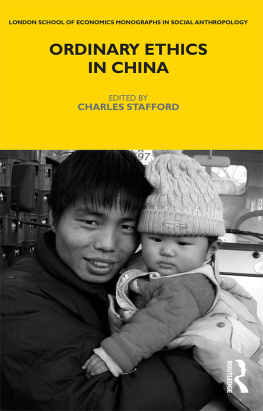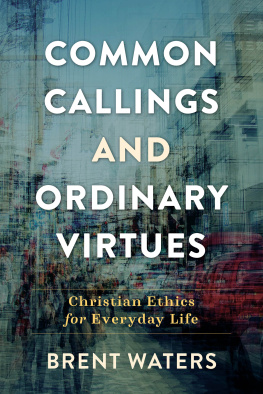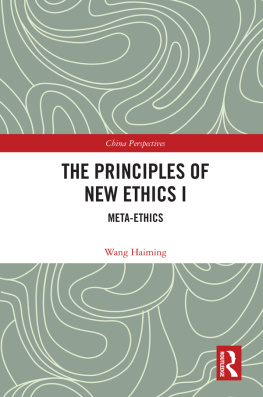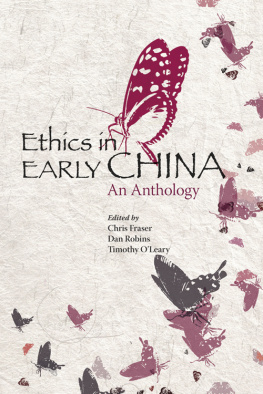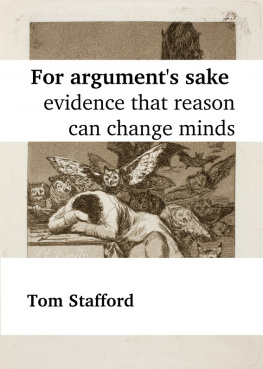ORDINARY ETHICS IN CHINA
LONDON SCHOOL OF ECONOMICS MONOGRAPHS ON SOCIAL ANTHROPOLOGY
Managing Editor: Laura Bear
The Monographs on Social Anthropology were established in 1940 and aim to publish results of modern anthropological research of primary interest to specialists.
The continuation of the series was made possible by a grant in aid from the Wenner-Gren Foundation for Anthropological Research, and more recently by a further grant from the Governors of the London School of Economics and Political Science. Income from sales is returned to a revolving fund to assist further publications.
The Monographs are under the direction of an Editorial Board associated with the Department of Anthropology of the London School of Economics and Political Science.
Ordinary Ethics in China
Edited by Charles Stafford
LONDON SCHOOL OF ECONOMICS MONOGRAPHS ON SOCIAL ANTHROPOLOGY
Volume 79
First published 2013 by Bloomsbury Academic
Published 2020 by Routledge
2 Park Square, Milton Park, Abingdon, Oxon OX14 4RN
605 Third Avenue, New York, NY 10017
Routledge is an imprint of the Taylor & Francis Group, an informa business
Charles Stafford, 2013
Charles Stafford has asserted his right under the Copyright, Designs and Patents Act, 1988, to be identified as Editor of this work.
All rights reserved. No part of this book may be reprinted or reproduced or utilised in any form or by any electronic, mechanical, or other means, now known or hereafter invented, including photocopying and recording. or in any information storage or retrieval system, without permission in writing from the publishers.
Notice:
Product or corporate names may be trademarks or registered trademarks, and are used only for identification and explanation without intent to infringe.
British Library Cataloguing-in-Publication Data
A catalogue record for this book is available from the British Library.
Library of Congress Cataloging-in-Publication Data
Ordinary ethics in China / edited by Charles Stafford.
p. cm. (London school of economics monographs on social
anthropology; volume 79)
Includes bibliographical references and index.
ISBN 978-0-85785-459-9 (alk. paper) ISBN 978-0-85785-460-5
(alk. paper) ISBN 978-0-85785-811-5 (alk. paper)
ISBN 978-0-85785-810-8 (alk. paper) 1. EthnologyChina.
2. EthicsChina. 3. ChinaMoral conditions. 4. China
Social life and customs. I. Stafford, Charles.
GN635.C5O85 2013
306.0951dc23 2012033162
Typeset by Apex CoVantage, LLC, Madison, WI, USA.
ISBN 13: 978-0-857-85460-5 (pbk)
ISBN 13: 978-0-857-85459-9 (hbk)
CONTENTS
Charles Stafford
Chih-yuan Wang
James Johnston
I-chieh Fang
Eona Bell
Charles Stafford
Hui Zhang
Hans Steinmller
Daniel Roberts
Francesca Bray
Gonalo Santos
Stephan Feuchtwang
Jing Shao and Mary Scoggin
Yunxiang Yan
Guide
This volume is the product of a workshop held at the London School of Economics in May 2009 on the topic of 'Ordinary ethics in China today'. The funding for this event was provided by the Asia Research Centre at the LSE, and we are very grateful for this generous support. During the workshop, we benefited greatly from the insightful contributions of Harriet Evans, James Laidlaw, Michael Lambek, Erik Mueggler and other participants.
CHAPTER I
ORDINARY ETHICS IN CHINA TODAY
Charles Stafford
This book is a reflection on 'ordinary' moral and ethical life in contemporary China. That is, the contributors focus as much or more on everyday questions of morality and ethics as on China's dramatic collective histories (in which, of course, moral questions have been writ large) or on the explicit moral philosophies of specialists (of which, of course, there are many in China). How, for example, are schoolchildren judged to be 'good' or 'bad' by their peers? What, if anything, do sons and daughters owe their parents? Is it acceptable to be jealous when one's neighbours, for example, in a rural community, become wealthy? If a person moves overseas, what are the ethics of him holding onto or letting go of the values he grew up with? Should the wrongs of the past be forgotten or dealt with now?
In the case of China, such questionsand the answers to them have obviously been shaped by the (sometimes turbulent) social and historical contexts against which they have been posed and by the weight of various Chinese traditions. But here we strive to approach them on a human scale. More specifically, we approach them from an anthropological perspective, based on participation in the flow of everyday life while carrying out fieldwork in Chinese communities.
Of course, anthropologists have long been interested in moral life, for example, in the rules that govern children's behaviour with respect to their elders (see Westermarck 1906: 597-628). Indeed, most of what anthropologists focus on in their researchfamily life, public rituals, the distribution of resources, and so forthis at least implicitly, and often explicitly, tied to moral judgement, that is, to the views of ordinary people about the 'goodness' or 'badness' of given states of affair. It is arguably difficult, however, for us to avoid conceiving such judgements in aggregate terms: for instance, to avoid concluding that the residents of a particular Chinese village or town, or even Chinese people as a whole, 'think' or 'believe' that the elderly should be cared for by the young, and that a Chinese son who fails to care for his ageing parents 'will be seen to be' bad. Anthropologists obviously know that characterizations of these kindsstatements about widely distributed understandings of moral rulesdon't, on their own, tell us what individuals really do think about a particular rule, nor what actions they will take with respect to it, nor how new circumstances may cause the rules to be rewritten. Ethnographic accounts typically focus precisely on such matters. Still, the notion of morality as collective consensus is hard to resist. As James Laidlaw observes, anthropologists sometimes even write as if the aggregate view of goodness is acuially good (Laidlaw 2002, cf. Laidlaw 2010).
This is where ethics comes in. Although making a sharp distinction between morality and ethics is not easy, the philosopher Bernard Williams reminds us that these terms do have different origins (Williams 1985; see also Laidlaw 2002; Zigon 2008; Lambek 2010). The term 'morals' (from Latin) relates to questions of custom, social expectation and rule whereas 'ethics' (from Greek) has more to do with individual characterand with the active attempts people make to do what is, or could be, right. Using a different language, we could say that morality is instantiated in structure (e.g. in rules of behaviour for persons in given structural positions) whereas ethics is instantiated in agency (e.g. in the attempts these persons make to negotiate moral rules/ frameworks). Obviously, these terminologies are specific to particular traditions of thought, and could be endlessly problematized. But the simple point herethat is, the reason for saying that ethics is the subject of our bookis to draw attention to the role of reflection, judgement and agency in moral life and, by implication, to shift away from overly rule-oriented (thereby consensualist) perspectives on moral personhood. While in some of the chapters that follow the terms 'morality' and 'ethics' are used interchangeably, our emphasis throughout is on the agentive side of moral life, that is, on 'ethics' in the Greek sense.


